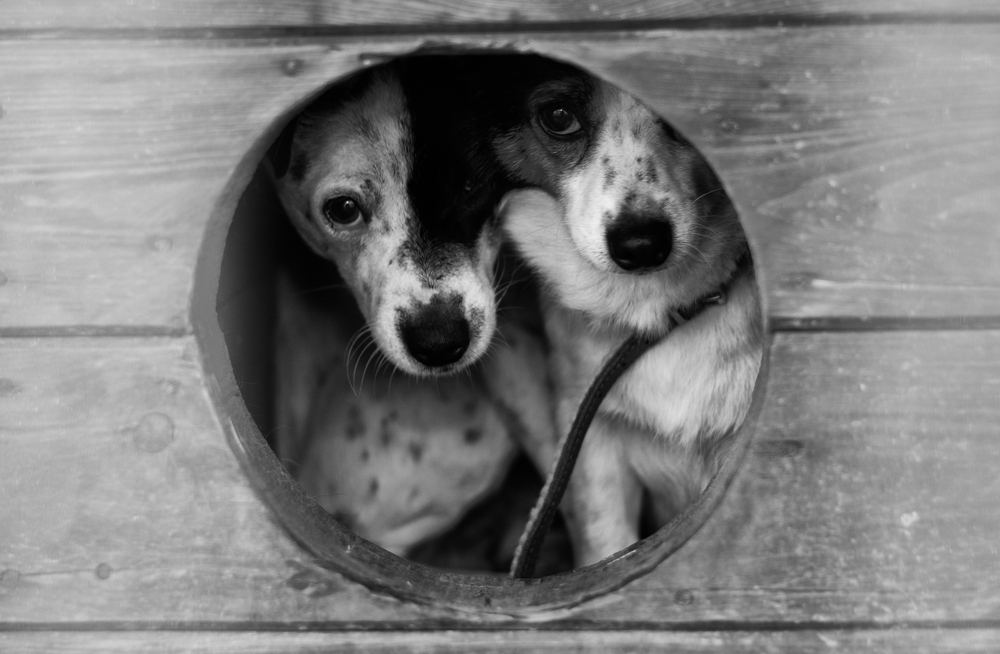10 Little-Known Facts About the ASPCA’s Fight Against Animal Cruelty

In this blog post, we’re shedding light on the commendable and often underappreciated efforts of the American Society for the Prevention of Cruelty to Animals (ASPCA) in its relentless battle against animal cruelty.
Founded in 1866, the ASPCA was the first humane organization established in the Americas, and its mission has been unwavering—to provide effective means for the prevention of cruelty to animals throughout the United States.
With a commitment that spans over a century and a half, the organization has been at the forefront of advocating for laws to protect our four-legged friends, rescuing them from abuse, and promoting animal welfare and pet adoption.
While many are aware of the ASPCA’s animal adoption initiatives, less known are the intricate details of their fight against cruelty and the proactive measures they’ve formulated to combat this ongoing issue.
The importance of raising awareness about animal cruelty cannot be overstated, as it not only highlights the dire situations many animals face but also mobilizes public support for legislative and practical solutions.
Join us as we explore 10 little-known facts about the ASPCA’s vigorous fight against animal cruelty, showcasing their pioneering strategies, legislative successes, and the compassionate heart behind their hard work.
1. The Origin Story
The ASPCA’s origin story is as impactful as its ongoing mission. Founded in 1866 by Henry Bergh in New York City, the organization was established with the noble mission to prevent cruelty to animals throughout the United States, stemming from Bergh’s belief that animals are entitled to kind and respectful treatment at the hands of humans, and must be protected under the law.
This was a radical idea at the time, with the ASPCA becoming the first humane society in North America.
Inspired by the suffering of animals he witnessed abroad and armed with the belief that all animals deserved compassion and protection, Bergh’s founding mission set the foundation for more than 150 years of advocacy, rescue, and welfare efforts by the ASPCA.
It’s a testament to his vision that today, the organization not only continues to champion the protection of animals but has also expanded its mission to include addressing more complex areas of concern such as legal advocacy, animal health services, and comprehensive rescue operations, forever altering the landscape of animal welfare in the United States.
2. Pioneering Animal Rights Legislation
One of the most pivotal aspects of the ASPCA’s history is its role in pioneering animal rights legislation. In the early days following its establishment, the organization embarked on a mission to advocate for laws that would ensure the protection and welfare of animals.
The first significant legislative success came in 1867, just a year after its founding, when the ASPCA secured the passage of the New York anti-cruelty law, establishing a legal framework to punish acts of cruelty towards animals.
This landmark legislation not only set a precedent but also equipped the ASPCA with the authority to enforce these laws.
Subsequently, the organization played a critical role in the creation and passage of the 28 Hour Law in 1873, which mandated that animals being transported across state lines for slaughter must be unloaded for rest, water, and feeding every 28 hours.
These early laws, influenced and sponsored by the ASPCA, marked the beginning of a nationwide movement towards recognizing animals as beings worthy of legal protection and humane treatment, setting the stage for the future of animal welfare legislation in the United States.
3. The Role in Disaster Response
The ASPCA’s involvement in disaster response showcases its commitment to protecting animals in all circumstances, particularly during natural disasters that leave pets and wildlife in vulnerable states.
When hurricanes, floods, wildfires, and other calamities strike, the organization springs into action, providing much-needed assistance.
Their disaster response efforts include deploying rescue teams to affected areas, setting up temporary shelters for displaced animals, and offering medical care to injured pets.
Furthermore, the ASPCA works closely with local agencies to coordinate rescue operations and ensure that animals are safely evacuated from danger zones. Their proactive measures not only save countless animal lives but also bring immense relief to pet owners and communities facing the aftermath of natural disasters.
This aspect of the ASPCA’s work underscores the importance of disaster preparedness and response in the broader context of animal welfare, highlighting their dedication to protecting animals under every circumstance.
4. Innovative Cruelty Intervention Programs
Among the ASPCA’s pioneering initiatives, their Innovative Cruelty Intervention Programs stand out for addressing the root causes of animal cruelty. These programs are meticulously designed to prevent cruelty before it begins, highlighting the organization’s proactive approach to animal welfare. Through education, community engagement, and resources aimed at pet owners, the ASPCA endeavors to instill an ethos of responsibility and kindness towards animals. These interventions not only aim to curb the potential for neglect or abuse but also work towards creating a society where cruelty towards animals is fundamentally unacceptable. By tackling the problem at its source, these innovative programs serve as a testament to the ASPCA’s commitment to not just responding to animal cruelty, but preemptively ensuring animals are treated with the compassion and respect they deserve.
5. Nationwide Impact
The ASPCA’s nationwide impact has been profound, with the organization significantly expanding its reach beyond its original New York City roots to touch nearly every corner of the United States.
This expansion has allowed the ASPCA to amplify its commitment to animal welfare on a grand scale, bringing innovative programs, legislative advocacy, and critical emergency response efforts to states far and wide.
Today, the organization operates with a network of shelters, veterinary clinics, and partner agencies across the country, ensuring that its mission to end animal cruelty and homelessness reaches communities regardless of their location.
Their current reach is a testament to the organization’s unwavering dedication to not just local, but national animal welfare, illustrating how the ASPCA has grown from a single vision into a comprehensive, nationwide crusade against animal cruelty.
This widespread influence has not only saved countless animal lives but also fundamentally shifted the conversation around animal welfare across the United States, setting new standards for how animals are treated and protected under the law.
6. Shelter Support Initiatives
In addition to its legislative victories and disaster response efforts, the ASPCA has significantly contributed to enhancing the welfare of animals through its Shelter Support Initiatives.
Recognizing the crucial role animal shelters play in the rescue, rehabilitation, and rehoming of millions of animals each year, the ASPCA extends a comprehensive range of support services to animal shelters nationwide.
This support encompasses grant funding, which aids in the expansion of shelter operations and the enhancement of facilities, ensuring that animals receive the best possible care during their stay.
Furthermore, the ASPCA provides professional training for shelter staff and volunteers, empowering them with the latest best practices in animal care, behavior assessment, and adoption protocols.
This investment in education ensures that shelter personnel are well-equipped to manage the complex needs of animals under their care, ultimately improving the outcomes for these animals.
Collectively, these efforts underscore the ASPCA’s commitment to strengthening the network of animal shelters across the country, supporting their shared mission to provide a safe haven for animals in need and to find them loving, permanent homes.
7. Veterinary Forensics in Fighting Cruelty
Veterinary forensics represents a vital frontier in the ASPCA’s arsenal against animal cruelty, blending the meticulous science of veterinary medicine with legal enforcement to unveil and address acts of abuse.
Leveraging this specialized field, the ASPCA utilizes the expertise of veterinary forensic professionals to collect, analyze, and present evidence of cruelty in a manner that is admissible in court.
These practitioners are trained to identify signs of abuse or neglect that might not be apparent to the untrained eye, from subtle indications of long-term neglect to evidence of physical harm.
This evidence becomes pivotal in prosecuting cases of animal cruelty, ensuring that perpetrators are held accountable under the law.
Additionally, veterinary forensics aids in establishing a historical record of abuse, which can be instrumental in preventing future harm to animals. Through the integration of veterinary science into legal processes, the ASPCA not only reinforces its commitment to fighting animal cruelty but also elevates the standards of animal welfare protection.
8. The Fight Against Puppy Mills
The ASPCA’s relentless fight against puppy mills exemplifies their comprehensive approach to animal welfare, focusing on eradicating the sale of animals from mass breeding facilities.
Puppy mills, notorious for their deplorable conditions and the prioritization of profit over the well-being of the animals, have been a significant battleground for the organization.
By advocating for stronger legislative measures and promoting public awareness campaigns, the ASPCA has made substantial strides towards ending this cruel practice.
Their efforts have not only illuminated the harsh realities behind the puppy mill industry but also fostered a growing public demand for more humane practices in pet acquisition.
Through legislative victories that restrict the sale of commercially bred animals in pet stores and encourage adoption from shelters, the ASPCA is not just fighting against inhumane conditions but also reshaping how society views pet ownership.
By tackling the issue at both the supply and demand levels, they are charting a path toward a future where the commercial breeding of animals for sale is obsolete, ensuring all animals are treated with the compassion and respect they deserve.
9. Education and Outreach
The ASPCA’s commitment to creating a more humane society extends beyond direct intervention and legislative advocacy to the equally critical domain of Education and Outreach.
By developing and delivering comprehensive educational programs aimed at informing the public about animal welfare, the organization fosters a deeper understanding and respect for animals across all ages and demographics.
These initiatives not only highlight the needs of animals and the importance of compassionate care but also empower individuals to make informed decisions regarding pet adoption, ownership, and advocacy.
From classroom-based curriculums that introduce young students to the basics of responsible pet care to community workshops that address more complex issues such as animal rights and the legal implications of cruelty, the ASPCA ensures that education is a powerful tool in its mission to prevent animal suffering.
Through these proactive educational efforts, the ASPCA is not merely reacting to instances of cruelty and neglect but is actively cultivating a culture of empathy and action, making the welfare of animals a shared community value.
10. How the Public Can Help
The public plays a pivotal role in supporting the ASPCA’s noble mission to protect and advocate for animals across the nation. Individuals looking to contribute can start by adopting pets from local shelters or ASPCA adoption centers, directly saving lives and making room for other animals in need.
Financial donations, no matter the size, significantly bolster the ASPCA’s efforts, funding everything from rescue operations to legislative advocacy.
Volunteering time at local shelters or ASPCA events is another invaluable method of support, providing much-needed manpower and attention to animals awaiting homes.
Further, by educating themselves and others about animal welfare issues, individuals can raise awareness and drive positive change in their communities. Lastly, advocating for stronger animal protection laws and policies can help create a safer environment for animals everywhere.
Each action, whether big or small, contributes to the broader vision of a humane society where every animal is treated with compassion and respect.
Conclusion
In summarizing the lesser-known aspects of the ASPCA’s rigorous fight against animal cruelty, we’ve uncovered the depth and breadth of an organization wholly dedicated to the protection and welfare of animals. From pioneering veterinary forensics to leading the charge against puppy mills, the ASPCA demonstrates an unwavering commitment to combating animal cruelty in all its forms.
The importance of recognizing and addressing these issues cannot be overstated, as each act of cruelty averted represents not just a victory for animal welfare, but for society as a whole. By educating ourselves and participating in the ASPCA’s various initiatives, we contribute to a movement that fosters compassion, empathy, and justice for animals.
We urge you to support the ASPCA’s ongoing efforts, whether through adoption, donation, volunteering, or advocacy. Each action you take paves the way for significant positive change in the lives of countless animals and strengthens the foundation for a future where all animals are treated with the dignity and respect they deserve.
Together, we can make a difference in the ASPCA’s noble fight against animal cruelty, ensuring it remains a priority in the hearts and minds of people everywhere.




